11 Hidden Reasons Behind Weight Loss Struggles. Uncover the Truth Now!

If you struggle to lose weight regardless of diet or exercise, this article outlines the reasons behind weight loss struggles. I’ve explored solutions for over a decade and few “health experts” guard these game-changing insights. Envision feeling lighter, healthier, and more confident, where energy soars and your body radiates vitality. People are attracted to your inner, beautiful self as well as the outside. While we all desire this, reaching it can feel like a steep climb.
Hidden Adversaries Affecting Your Weight Loss:
After we uncover 11 formidable adversaries that stand between you and your weight loss goals, keep reading to learn about the powerful forces that can stir emotions of frustration, despair, and self-doubt that do have remedies.
The Silver Lining:
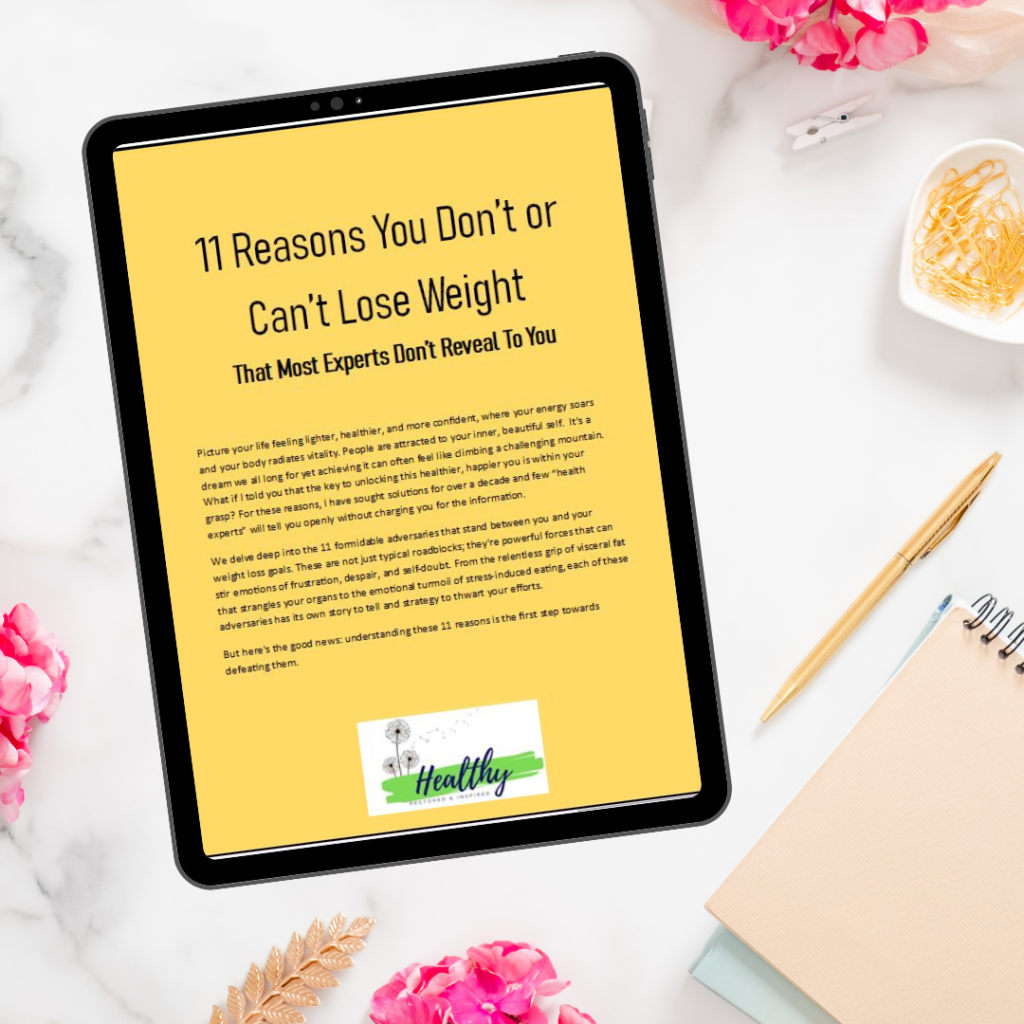
However, understanding these reasons behind weight loss struggles is the first step towards finding and unlocking your individual path to that revenge body your friends and family will be jealous of. Together, we’ll demystify your body’s resistance and arm you with the knowledge and strategies needed to conquer these weight loss foes.
Reason #1: Hormonal Imbalance
Hormones act as messengers in your body, regulating many functions, including metabolism and fat storage. Hormonal imbalance is the leading reason behind weight loss struggles. When something throws these messengers out of sync, it can lead to an uphill battle with weight. High blood sugar and insulin levels often cause hormonal chaos, affecting other critical hormones like estrogen, testosterone, thyroid, and cortisol. High blood sugar and insulin levels cause hormonal imbalance.
Managing Blood Sugar for Hormonal Health:
Eating foods that spike blood sugar, like processed foods and high-sugar and high-fat treats. prompts the body to release insulin to bring it back down. This can disrupt your hormonal harmony. High insulin levels can lead to issues like estrogen dominance, linked to fat storage, especially around the hips and thighs. It can also increase testosterone, contributing to weight gain around the belly. It will affect your thyroid, slow metabolism, and elevate cortisol levels from the stress, leading to belly fat buildup.
Choosing whole foods with a priority on adequate protein with low-GI vegetables will help. Low glycemic index (GI) foods release sugar into your bloodstream gradually, keeping your blood sugar and insulin levels stable. When there are plentiful amounts of protein consumed with those vegetables, the body is able to further control the increase in stored glucose. The body also expends 30% of all calories from protein during digestion, a fantastic bonus.
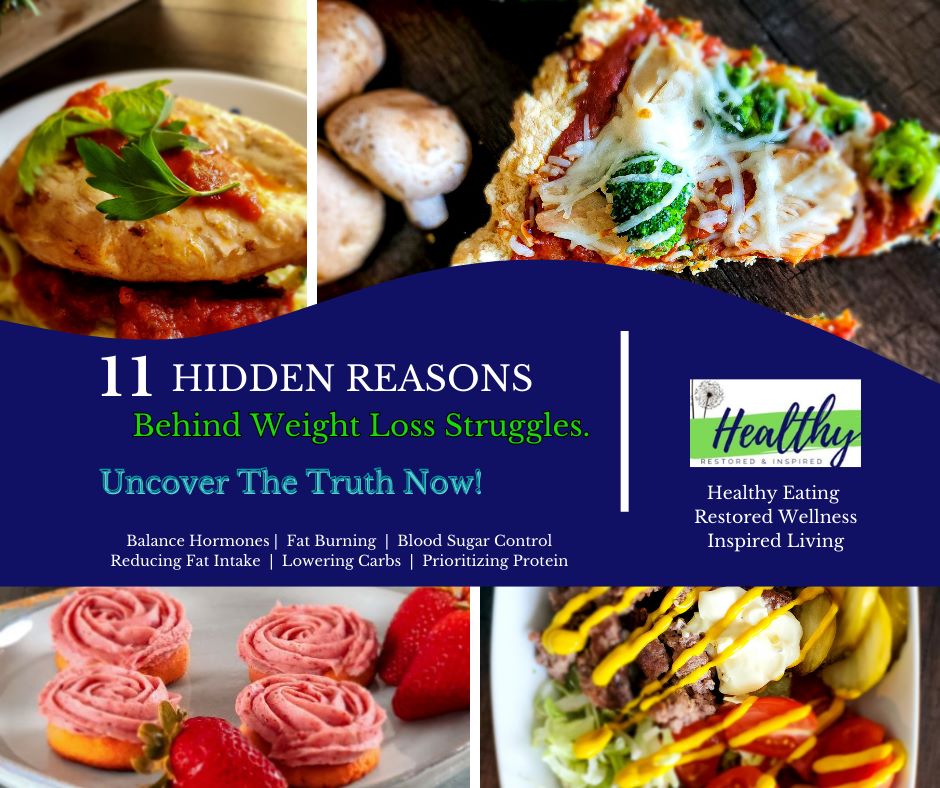
Blood sugar acts as fuel for your body’s cells and organs. It provides the energy needed for daily activities. When you eat, your body breaks down carbohydrates in food and converts them to glucose, which then enters the bloodstream. Insulin, the hormone produced by your pancreas, acts as a key, allowing glucose to enter your cells for energy. This process helps keep your blood sugar levels in a healthy range.
However, when there’s an imbalance, it can lead to health problems. High blood sugar, often caused by consuming too many sugary foods and processed carbs in the absence of an active lifestyle, can strain your organs and damage blood vessels over time. It’s like overloading your vehicle with a heavy trailer and pulling it across the country; it can lead to engine trouble.
Oftentimes, many people turn to a vegan or vegetarian diet to remedy the symptoms because that’s what “social media” is telling them is the solution. However, suppose the body is already struggling with foods that impact blood sugar and hormone balance, this form of diet, when done without protein and the 9 essential amino acids necessary to benefit from protein. In that case, they end up losing muscle and further complicating blood sugar and insulin resistance.
Reason #2: Blood Sugar’s Effect on The Body
Regulating blood sugar can be challenging due to poor dietary choices, such as excessive consumption of sugary and processed foods and drinks, which leads to spikes in blood sugar levels. If you are insulin resistant, you’ll find this as a major reason behind weight loss struggles. Additionally, lack of physical activity, stress, and genetics can influence how your body manages blood sugar. For some, prolonged high blood glucose corrodes cells, blocking insulin function. It is important to note that this can happen in those who are not overweight in any external physical way. We call this skinny fat. Skinny on the outside but a hot mess on the inside. A 5’3 female weighing 109 pounds can have a fasting blood glucose of 148 (normal is under 100). Her cells look like that of a patient weighing 350 pounds. The opposite can be true of obese people with perfect blood glucose levels. Knowing these levels and learning how your DNA can help you take control of your weight.
Monitoring Blood Sugar:
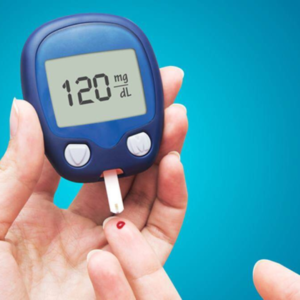
The good news: you have immediate control over your blood sugar through your dietary choices. Choose to reduce your intake of carbohydrates and sugar and quickly lower blood glucose levels. Choose foods with a low glycemic index (GI). For example, opting to focus on adequate protein for your lean body mass (LBM) and vegetables that complement your meal, selecting berries instead of citrus fruits and strictly regulating all, if any, grains in your diet. It’s like giving your body the right amount of fuel it needs for a smooth ride, without the rollercoaster of sugar highs and crashes. By making these mindful food choices, you can positively impact your blood sugar and overall health.
Reason #3: The Stress-Weight Connection: How Cortisol Affects Fat Storage
Stress is like an unwelcome guest that can linger in our lives, and it has a more significant impact on our bodies than we might realize. It can be a driving reason behind weight loss struggles. One key player in this stress-weight relationship is a hormone called cortisol. When stressed, the body releases cortisol as part of the fight-or-flight response, preparing you to handle the perceived threat. While this response can be helpful in the short term, chronic stress can lead to consistently high cortisol levels, which isn’t good news for your waistline.
Cortisol is known as the “stress hormone” because it can contribute to fat retention, particularly around the abdominal area. When cortisol levels remain elevated, it encourages your body to store fat, especially visceral fat—the deep, hidden fat that surrounds your vital organs. This is like your body’s emergency savings account for times of stress, but when stress is chronic, the fat keeps piling up, leading to weight gain and increased health risks.
Stress and Everyday Products
Did you know that daily hygiene products like shampoo, soap, and lotion, can cause stress in our bodies? Many of these products contain chemicals that can make our bodies feel stressed out. When we use them, our skin can absorb these chemicals, and our body will react to them as it would any other stressor.
Stress Management: Tips For A Healthier You
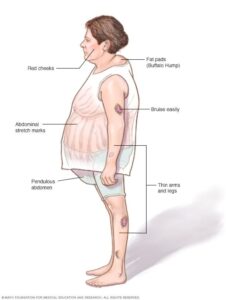
Fortunately, there are effective stress management techniques that can help you keep cortisol in check and support your weight management goals. Our cortisol levels peak upon waking. One simple strategy is to avoid consuming coffee on an empty stomach, as caffeine can stimulate cortisol production. Instead, try having a small meal or snack of at least 30 grams of protein before your morning coffee to buffer the impact. Additionally, incorporating adequate protein into your diet can help stabilize blood sugar levels and reduce the body’s stress response. Proteins like chicken, fish, and eggs can provide a steady source of energy throughout the day, helping you feel more balanced and less stressed.
Remember, stress is a part of life, but how you manage it can make a big difference in your overall well-being. Understanding the cortisol-weight link and using stress techniques can improve your health.
Reason #4: The Protein Dilemma:
Think of proteins as your body’s unique building blocks. Two protein types almost exclusively used in protein shakes and bars, casein, and whey, come from milk, but their impacts on your body can be quite different.
Casein Protein:
Casein has similar amino acid sequences as gluten and can create a similar reaction within the body if you are sensitive. It is slower to break down in your stomach and provides a steady supply of amino acids to muscles over several hours. However, this slow breakdown triggers blood sugar elevation and insulin responses hours after consumption, which promotes fat storage.
Whey Protein:
Whey is the speedster of proteins. It’s quickly digested and absorbed by your body, increasing bloating and inflammation. Whey breaks down quickly causing blood sugar spikes. It’s a sugar rush rollercoaster that promotes fat storage instead of fat burning.
The next time you reach for that protein snack, consider healthier choices like lean protein, and don’t forget to share this protein wisdom with your friends and family who regularly consume casein and whey.

Reason #5: Unlocking the Power of Protein: Fuel for a Healthy You
Protein is vital for our health, and a deficiency is a reason behind weight loss and hormonal struggles.
Protein helps repair and build tissues, supports the immune system, and helps you feel full and satisfied after meals. If you skimp on protein, your body can start holding onto fat because it’s not getting the nutrients it needs. It’s like telling your body, “Hey, we’re running low on fuel, so let’s store some extra energy, just in case.” That extra energy often gets stored as fat, especially around your belly.
When you consistently miss out on protein, your body enters a state of distress. The muscles weaken, your immune system becomes less effective, cortisol surges and your hair and nails might become brittle. It’s like a symphony without an entire section of instruments—things start falling apart. To keep your body strong and healthy, it’s crucial to consume adequate protein, and animal protein is a great source. It provides essential amino acids your body can’t make on its own, supporting all those vital functions.
Eliminate Protein As A Reason Behind Weight Loss Struggles
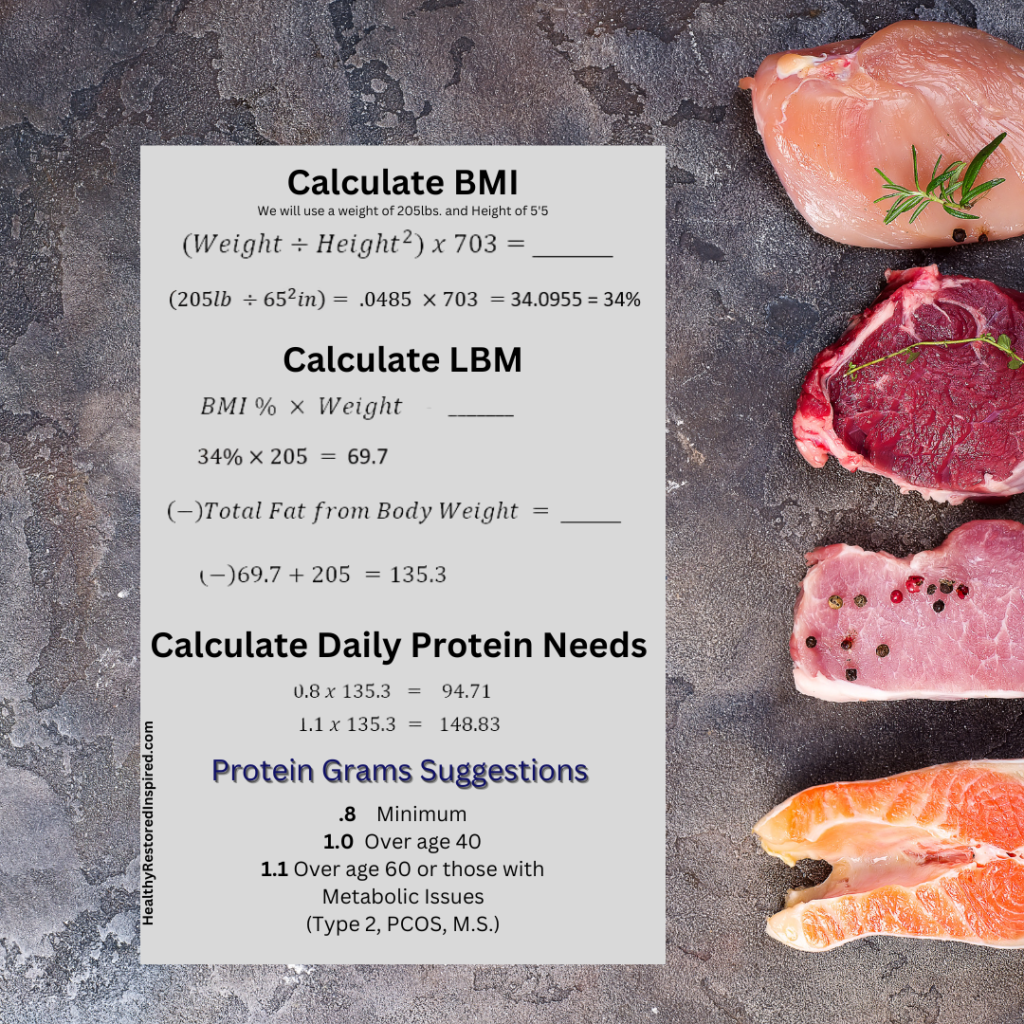
Recommendations for a healthy adult with no autoimmune or metabolic issues are to consume 0.7 times your lean body mass. For those individuals with weight loss goals, autoimmune or metabolic diseases, and symptoms, or for those over the age of 45, it is recommended that you strive for 0.8 grams per lean body mass for women and 0’s for men. If you are struggling with weight gain and low muscle mass, it might be a good idea to consider adding quality lean proteins to your daily eating plan for a few weeks to determine if you feel a difference.
Supercharge your fat loss by consuming a minimum of 35-55 grams of protein at breakfast, 35-55 grams with lunch, and the remainder of your protein goal with dinner. (Eat Breakfast like a king, lunch like a queen, and dinner like a pauper)
Reason #6: The Crucial Connection Between Sleep and Weight Loss
Discovering the reasons behind weight loss struggles is crucial and one such reason is the quality and quantity of sleep. It’s more than just a random thought – it’s a fascinating reality. Sleep isn’t just about rest; it’s a significant player in the world of weight management and reducing stress.
Here’s the deal: when you don’t get enough sleep, it messes with your body’s hunger hormones. Ghrelin, the hormone that signals hunger, goes into overdrive, making you feel like you could eat a whole pizza at 3 AM. Meanwhile, leptin, the hormone that tells you when you’re full, decides to take a nap, leaving you with a ravenous appetite. It’s like your hormones are playing a joke on you.
Balancing Hunger Hormones Through Quality Sleep
Ways To Improve Sleep

But fear not, there are ways to keep these hormone hijinks in check. Establishing a bedtime routine can signal to your body that it’s time to wind down. Activities like reading or gentle stretches can help prepare your body for rest. Creating a peaceful sleep environment with a dark, quiet room at a comfortable temperature can also work wonders. And remember, the blue light from screens can disrupt your sleep cycle, so it’s a good idea to put away the devices at least an hour or two before bedtime.
When we lack sleep and then exercise, the activity actually hinders fat loss and places the body in deeper distress. So if you’ve had less than 6 hours of sleep, opt for a light yoga stretch session and focus on creating a sleep oasis for that night.
It’s easier to talk about making sleep a priority than actually doing it. Research tips and actively improve your sleep environment for the best quality rest. Cold showers an hour before bed work for some but not others. Keep actively tweaking your sleep schedule until you achieve 8+ hours each night.
Reason #7: Striking the Right Balance: Fats, Insulin, and Low-Carb Magic
Among the reasons behind weight loss struggles, understanding the balance of fats in your diet is often overlooked. You see, it’s not just about cutting carbs; it’s also about managing fats smartly to make the most of your journey.
Here’s the scoop: when you’re on a low-carb or ketogenic diet, your body looks to fats as an alternative source of energy. But not all fats are created equal. Consuming healthy fats, like those found in avocados, nuts, fatty fish, and beef, is crucial for overall health. We consider “bad fats” seed and vegetable oils, which when ingested, can block the passageways that insulin and glucose use to get out of the blood. Glucose then circulates in the blood longer, keeping the blood glucose elevated for a greater period of time. While not everyone is subject to this response, if you have been on a low-carb high-fat diet with adequate protein consumption and are still not losing weight, this can be a reason behind weight loss struggles.(ref)
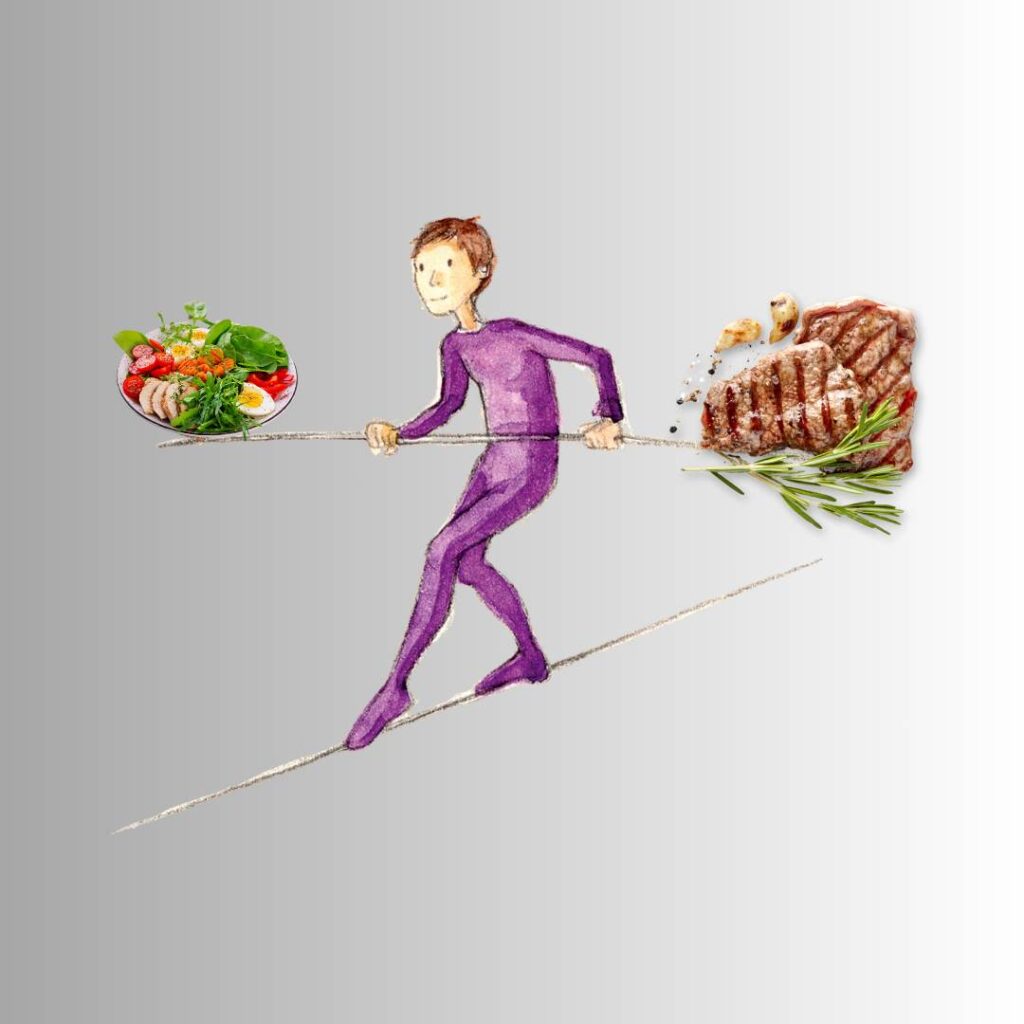
Achieving Dietary Equilibrium: How To Find Balance?
So, how do you strike the right balance? It’s about making mindful choices. Ensure you’re getting enough of the healthy fats your body needs (a minimum of 30 grams per day for vitamin and nutrient absorption), but avoid going overboard. Portion control is your friend here; try not to add dietary fat and focus on the naturally occurring fat in your protein. Here’s a little secret: keeping your carb intake below 30 grams per day can help you maintain that low-carb magic while still getting the fats necessary for a well-rounded diet.
In a nutshell, on your low-carb adventure, fats are your allies. Just remember to find that sweet spot between fats (30-90 grams) and carbs (below 30 grams), and you may be surprised at the difference.
Reason #8: Unlocking the Weight Puzzle: Genetics, Fitness, and Realistic Goals
Are you someone who wonders why weight management feels like solving a complex puzzle? Genetics is one of the intricate reasons behind weight loss struggles, but it’s not the sole determinant. Your genes play a role in how your body manages weight. But fear not, genetics isn’t the whole story. There are other factors at play, like body composition and your fitness routine, which can tip the scales in your favor.
Let’s talk about body composition. Your body is made up of muscle, fat, and other tissues, and this mix can and does affect your metabolism. Muscle burns more calories than fat, even when you’re at rest. So, the more muscle you have, the higher your metabolism, and the easier it becomes to manage your weight. High-intensity training can be your secret weapon here. It not only helps build muscle but also revs up your metabolism, making it easier to torch calories. If you have time to workout, opt for strength training over cardio every time to see big differences in fat loss.
Calories: Deficit or Surplus?
Now, here’s the real kicker: daily calorie fluctuations. Your calorie needs aren’t the same every day. They can vary based on your activity level, stress, and even sleep quality. Embrace calorie fluctuations rather than a fixed goal. Focus on adequate protein and allow the calories to range between 1,200 and 2,000. Yes, even a few days of 2,000 calories known as a refeed day (at least a day or two every 2-4 weeks) can actually help you burn more stored fat.

In a nutshell, genetics may load the dice, but you hold the cards when it comes to weight loss and management. By building muscle, and incorporating frequent movement and exercise, while keeping your body’s calorie needs in fluctuation, you can ace the weight management game and achieve a healthier, happier you.
Reason #9: Unlocking Your Gut’s Fat-Burning Potential: A Journey to Wellness
Picture your gut as the control center of your body, a bustling metropolis of trillions of tiny inhabitants. The balance of your gut biome is another significant reason behind weight loss struggles, impacting your hunger and satiety. It’s a fascinating story of gut health, hormones, and the healing benefits for cells.
Ghrelin and leptin are our two key players. Ghrelin, often referred to as the “hunger hormone,” signals to your brain that it’s time to eat. Leptin, on the other hand, is your “I’m full” hormone, letting your brain know when it’s time to put the fork down. When your gut biome is out of balance, it can disrupt the delicate dance between these hormones, leading to overeating and fat storage.
Rehabilitating Your Digestive System: Improve The Gut Fast!
Here’s the exciting part: you have the power to nurture your gut biome and restore balance in a few days’ time. Start by eating probiotic foods that act as nourishment for the friendly bacteria in your gut, helping them thrive. Probiotic foods like yogurt and kefir are not recommended as they tend to be loaded with sugar (albeit natural) and sugar harms your gut biome. Seek fermented foods like sauerkraut and kimchi; just be aware that they are higher in histamine which may cause reaction symptoms. Taking a quality probiotic that is shelf-stable, like Culturelle or Just Thrive probiotics is another great way to make major changes to your gut.
And don’t forget about prebiotics – foods like garlic, onions, and asparagus that feed those beneficial gut bacteria. As you embark to improve your gut health, you’ll not only support better digestion but also enhance your body’s ability to burn fat. It’s like giving your gut biome a VIP pass to the fat-burning party.
Another brilliant way to improve gut health is by drinking from a copper cup. Source quality copper cups (I recommend 2 per person) Source natural spring water (never use tap water or purified drinking water) Let the water sit in the cup for 24-48 hours, drink, and refill the cup. This is why I recommend 2 cups, drinking from one on alternate days. Copper has an oligodynamic effect that can kill bacteria, viruses, algae, mold, spores, and fungi. Water held in copper can reduce inflammation in the stomach lining which helps with ulcers, indigestion, gas, and infections. It also improves digestion.
Your gut health isn’t just about digestion; it’s a key player in your weight management journey. By nurturing your gut biome with the right foods and embracing a balanced diet, you can unlock your body’s natural ability to burn fat. So, let the power of a healthier gut inspire you on the path to wellness and a fitter, happier you!
Reason #10: Unlocking the Secrets of Fat Loss with Supplements
Supplements can be your allies in the journey to fat loss, each offering a unique advantage:
Berberine: Regulates blood sugar and controls appetite. A great natural replacement for Metformin.
Chromium Picolinate: Supports insulin function and efficient calorie usage.
Vitamin B Complex: Boosts metabolism and energy production.
Alpha Lipoic Acid: Enhances insulin sensitivity and reduces inflammation.
Acetyl L-Carnitine: Promotes fat transport for energy production.

Hormone-Supporting Supplements: Organic Wild Yam Root Extract cream is a transdermal approach that can aid in female hormone balance. Make certain to source the ingredients in your cream wisely. Avoid added chemicals, emulsifiers, and preservatives. It is okay to see marshmallow root extract, beeswax, chastberry, and lavender oil. Botanical blends are common.
For men, consider Saw Palmetto to support prostate and testosterone.
To make the most of these superheroes for health, it’s wise to introduce them one at a time. This way, you can understand how each supplement affects your body and tailor your approach. Supplements should complement a healthy diet and exercise routine. As you build your supplement arsenal, you’re setting the stage for a powerful fat-loss journey. So, embrace the journey of discovery, and let these supplements unlock your full potential.
Reason #11: Mitochondria: The Cellular Powerhouses for Fat Burning
Meet the mitochondria, the powerhouses of your cells. They’re the real MVPs when it comes to energy production and, yes, fat burning. These tiny, mighty structures are where the magic happens, converting nutrients into the energy your body needs to thrive.
You can give your mitochondria a boost with some unique approaches. Cold therapy, like ice baths or cold showers, can kickstart mitochondria function by challenging your body to generate more heat, revving up those cellular engines. Sun therapy, on the other hand, provides your cells with vital vitamin D, which is crucial for mitochondria health. Just 15 minutes first thing in the morning with your arms and legs exposed can help energize mitochondria to increase cell function all day.
Foods to Boost Cellular Performance: Nutrition for Mitochondria Supercharge

But it doesn’t stop there. Nutrition is the secret sauce to supercharge your mitochondria. Foods rich in antioxidants, like berries and leafy greens, protect these powerhouses from oxidative stress. And don’t underestimate the power of fasting or intermittent fasting – it can stimulate mitochondrial autophagy, a fancy way of saying it helps your cells clean house and function optimally.
So, in the quest for improved mitochondria function, embrace the chill of cold therapy, soak up some sun, and savor a diet rich in antioxidants and the occasional fasting adventure. Your cellular powerhouses will thank you with increased energy and better fat-burning capabilities. It’s like giving your cells a turbo boost for a healthier, more vibrant you!
Below I Show You How to Apply Everything Above
Why Don’t We Do The Things To Lose Weight?
Now that you’ve reviewed these 11 fascinating reasons your weight loss journey might be stalling, remember that your path to health is yours to own. Don’t be discouraged if it takes time and experimentation to find what works best. Your body is a masterpiece, and discovering the keys to unlock its full potential is a journey worth taking.
Experiment with different approaches, and listen to your body’s signals along the way. With patience and perseverance, you can overcome weight loss plateaus and achieve your goals.
I put together a free PDF with a week-long meal plan with all the recipes, wellness tips, and right now, a giveaway of clean products for healthy living, and a Kitchen-Aid mixer valued at over $750.
If you are interested in learning more about how to overcome any of these obstacles in this article, you’ll definitely want to learn how to counter them.
Best regards,
Amy North
The Healthy Restored Inspired Mission
The mission of this blog is to provide healthy information and recipes to readers that will lead to restored wellness and allow you to live a life of inspiration. When we feel well, we can choose our adventures.
Members of the blog enjoy a total wellness package that has led to numerous health conditions being reversed. While fat loss is what brought us together, it is the feeling of complete wellness that drives us forward. The Trimspiration Revolution Program may be your key to unlocking all of your health and fitness goals.
Favorite Posts:



